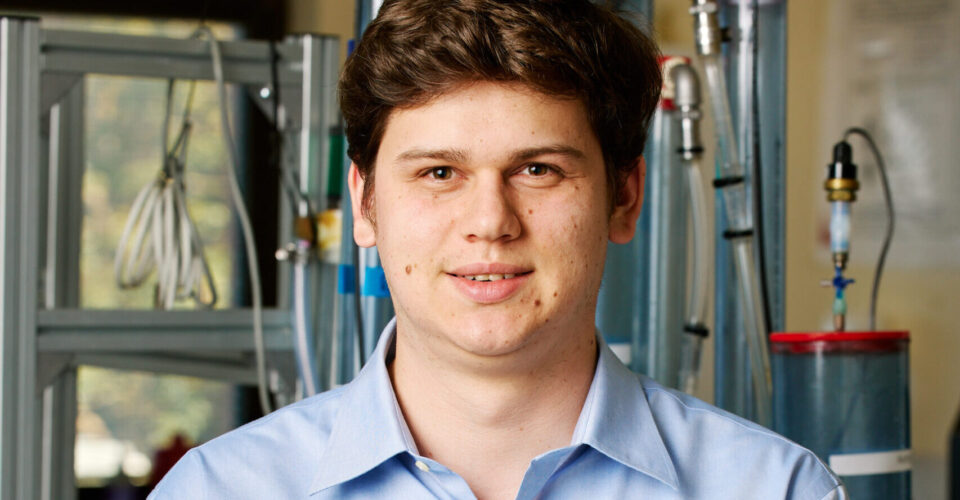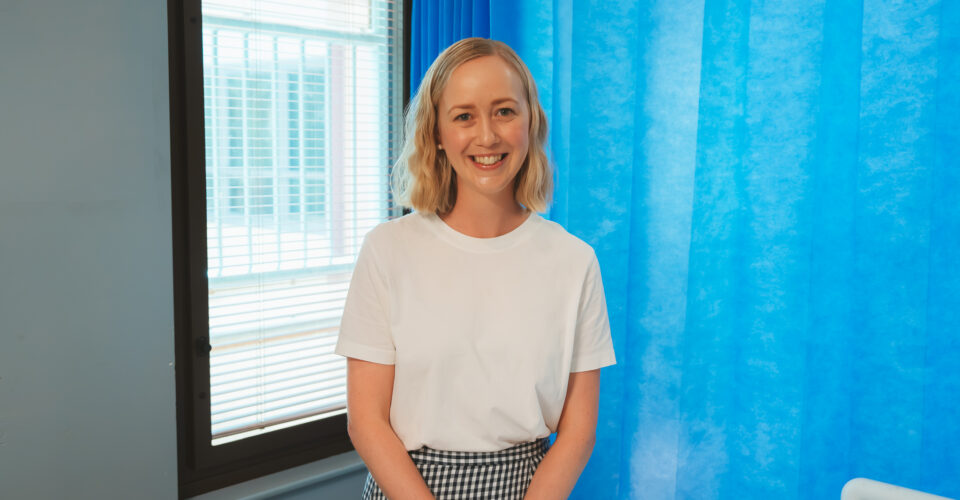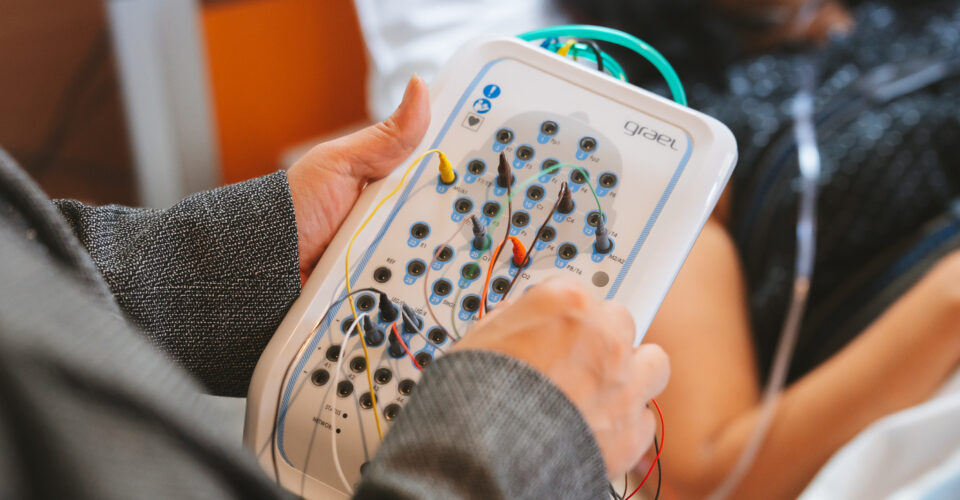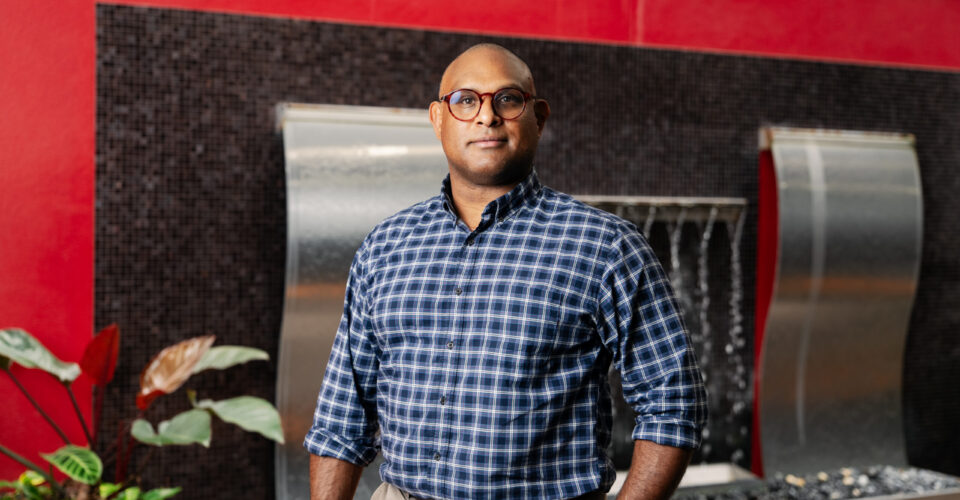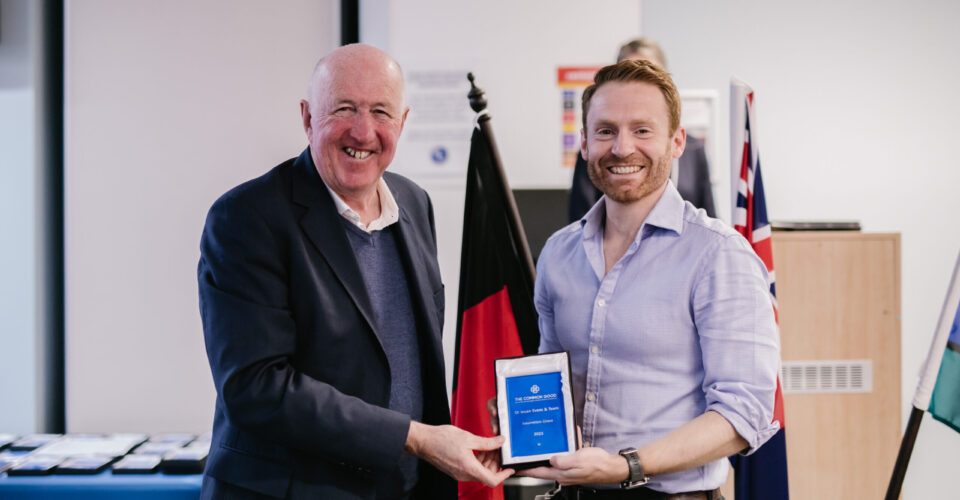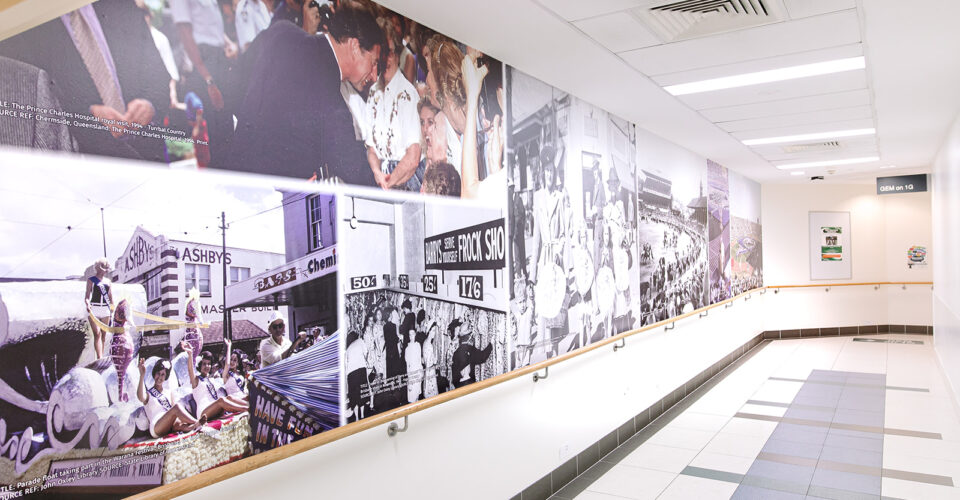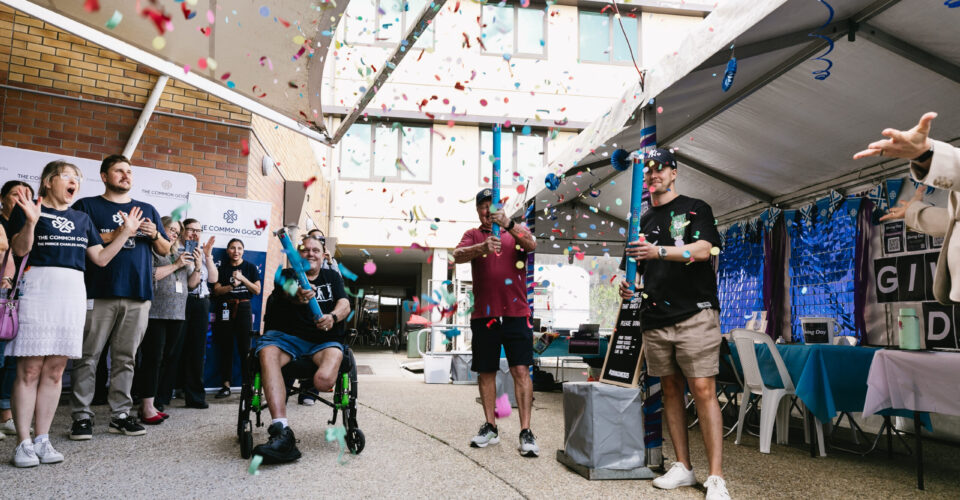Durable ventricular assist devices (VADs) are out of reach globally for many patients with severe heart failure, especially in countries with limited access to affordable healthcare. It’s a fact that inspired PhD Candidate Taylor Sing to develop a cheaper and more effective alternative.
“Currently-available circulatory assist devices typically require several expensive components, and the cost to manufacture is quite high, which often makes it prohibitive for hospitals, particularly in countries where access to healthcare is more limited. By introducing something like an Intra-Ventricular Balloon Pump (IVBP), we hope to be able to reduce the actual cost of the device being used to support the heart and, thus, giving more heart failure patients an affordable treatment option,” said Taylor.
Taylor, who received a PhD scholarship in 2020 from The Prince Charles Hospital Foundation, has spent the past several years with the Critical Care Research Group’s ICETlab developing and testing the efficacy of a cardiac assist device called an Intra-Ventricular Balloon Pump (IVBP). A prototype is being tested in the hopes that the technology could one day provide a low-cost option for short-term circulatory support for patients either waiting for a heart transplant or as they recovery naturally.
“We are innovating from a previous balloon pump – the Intra-Aortic Balloon Pump – but by putting a device into the ventricle, we anticipate that you’d be able to get a greater increase in cardiac flow and pressure to be able to better support heart failure patients and restore some element of quality of life. This effectively buys the patients time as clinicians try to determine whether a transplant is needed or a more durable, long-term support device. We hope to develop a device that will last up to three months. That’s the timeline we are envisioning.”
Redesigning the Intra-Ventricular Balloon Pump (IVBP) prototype
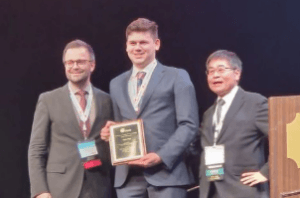 In 2023, Taylor worked on redesigning the IVBP prototype based on the results of a previous preclinical study. This revamp included updating the device’s shape and changing the material from silicone to polyurethane – which has proved more resilient. The recent work has also focused on improving the implantation method to reduce the risk of catastrophic bleeding.
In 2023, Taylor worked on redesigning the IVBP prototype based on the results of a previous preclinical study. This revamp included updating the device’s shape and changing the material from silicone to polyurethane – which has proved more resilient. The recent work has also focused on improving the implantation method to reduce the risk of catastrophic bleeding.
“We’d conducted an implantation that was less successful, resulting in the balloon tearing. As a result, we decided to redesign the balloon and implantation mechanism to reduce the chances of developing tears,” he explained.
Taylor describes 2023 as a year of significant progress for his PhD, particularly in two major areas. Firstly, progress was made with implanting the redesigned balloon pump into a large preclinical model.
“The heart was closed around the balloon, with the sheep stabilising post-insertion and no evidence of mitral valve interaction, arrhythmia or thrombosis. Six hours of support was provided to the animal, demonstrating an increase in cardiac output and pressure.”
The second area of significant progress was in conducting blood compatibility studies, which sought to understand whether the balloon pump would induce more blood damage than you would see in a standard heart failure patient and, if so, how much more, and would this be an issue when implanting the device into a patient.
“We developed a pulsatile mock circulatory loop capable of conducting haemocompatibility tests using a single donation of human blood and tested this as part of the study. We managed to showcase that the balloon pump could increase the amount of support to the heart and that the increase in blood damage was proportional to an increase in flow, meaning that the balloon itself does not damage the blood,” he said.
2023 Asia Pacific Young Investigator Award Recipient
Taylor presented his research the International Society for Mechanical Circulatory Support conference in Dallas at the end of October, where he received the prestigious 2023 Asia Pacific Young Investigator Award for this work – In-vitro haemolysis evaluation of a prototype intra-ventricular balloon pump as short-term mechanical circulatory support.
It was a massive shock originally; I never anticipated it, but I am incredibly thankful. It felt like real validation of the work I’ve been doing and that my work was being recognised at an international level – Taylor Sing, PhD Candidate
“I look back on 2023, and I think – it’s a communal effort. I’m very, very proud, not just of the work that I’ve done, but of the work of the people around me, from the ICETLab and right across CCRG, The Common Good and everyone else in the TPCH community.”
